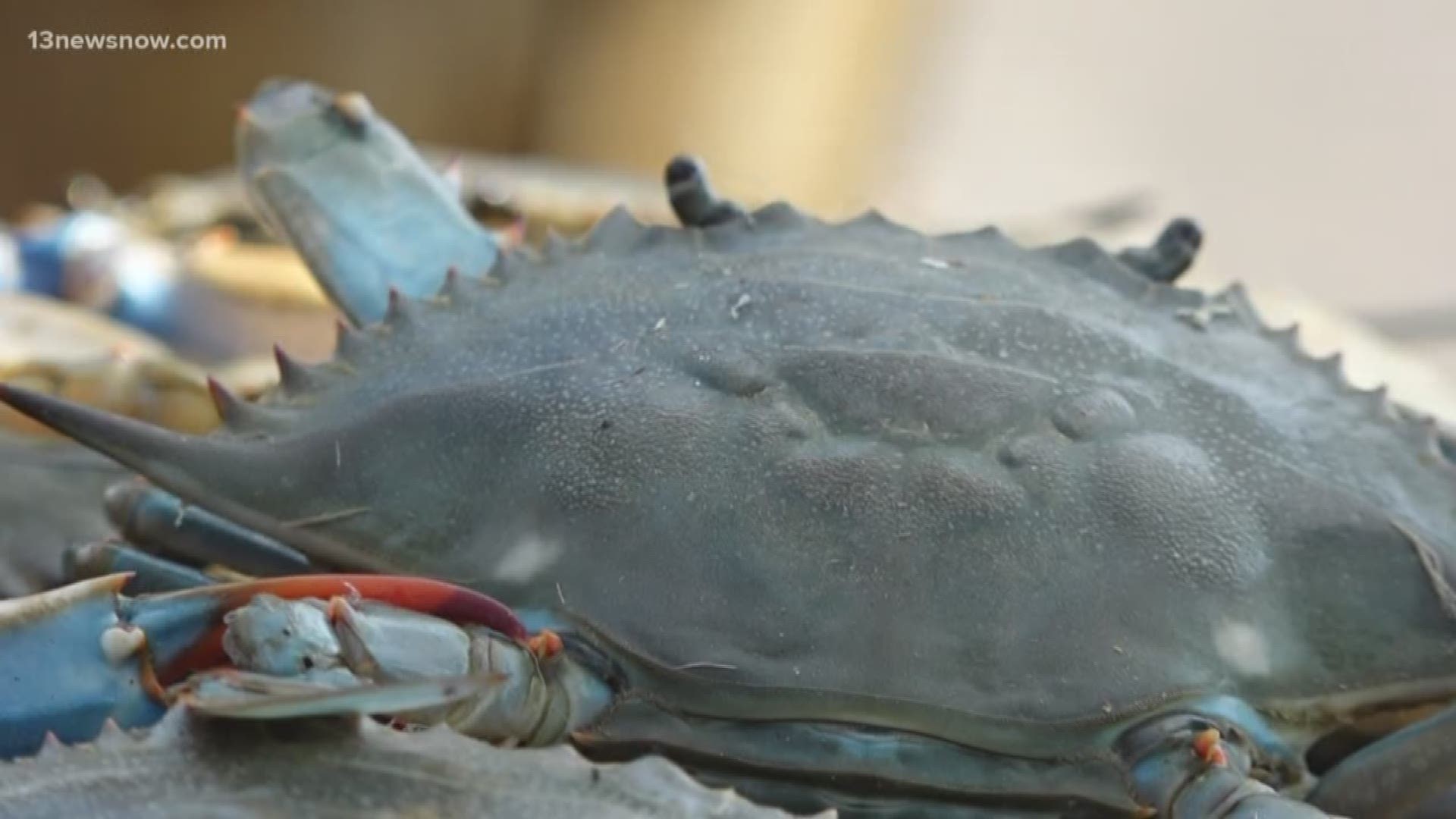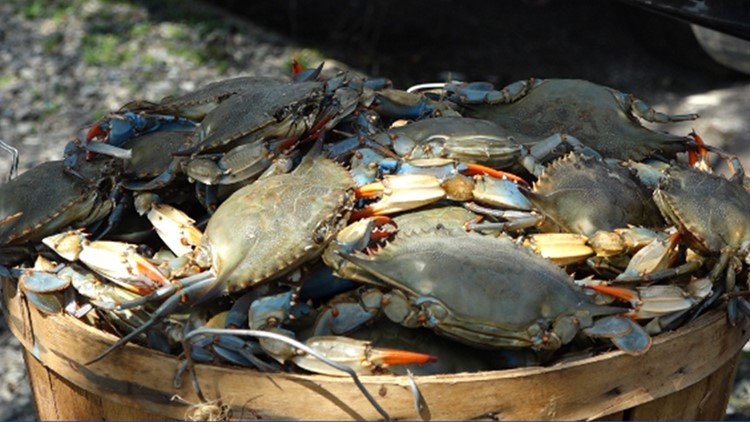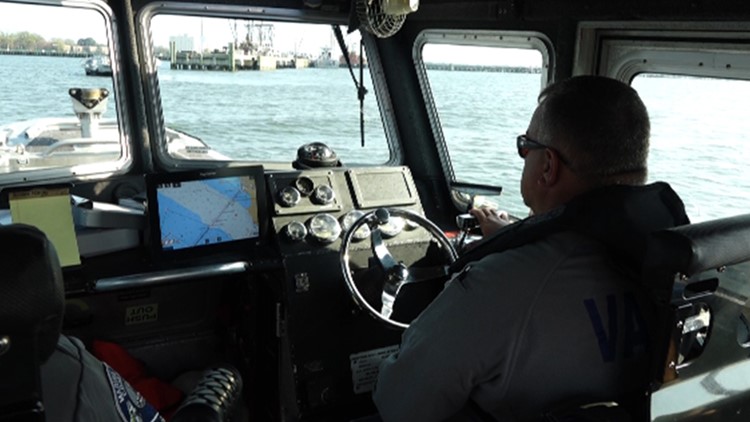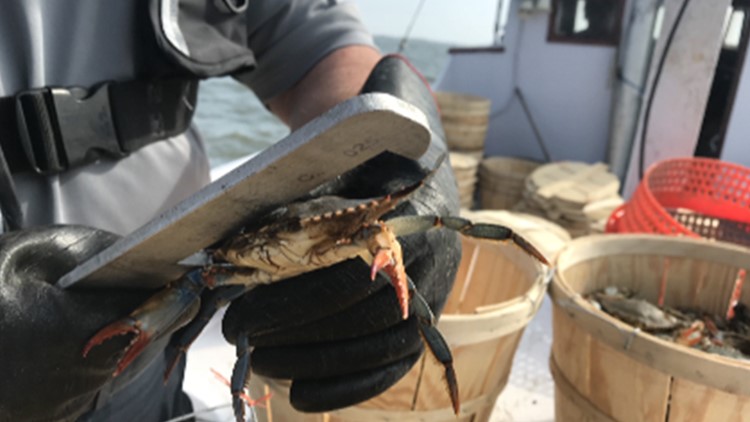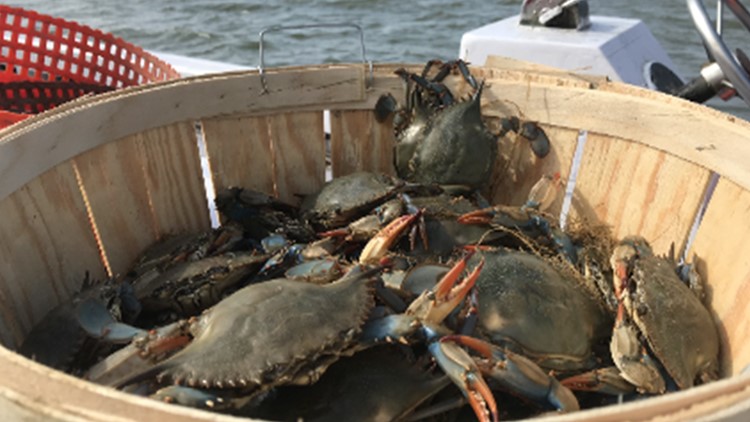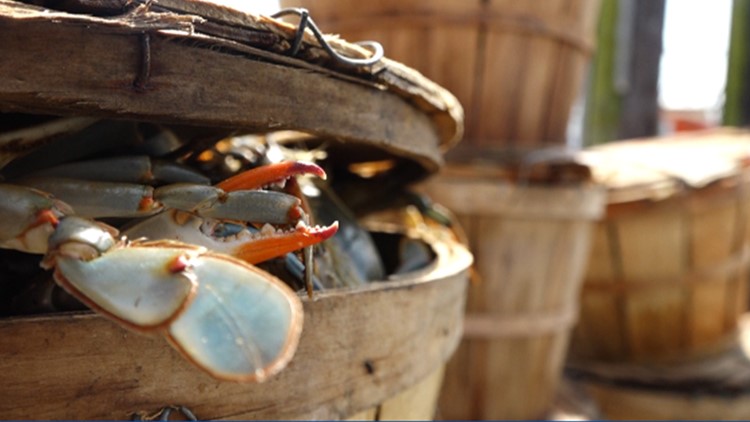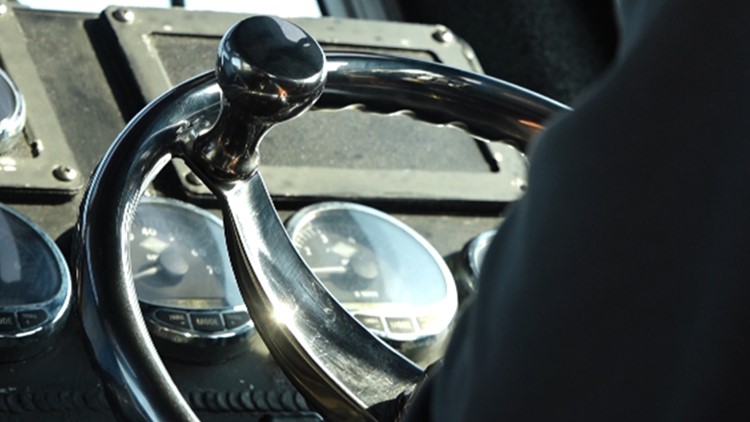NEWPORT NEWS, Va. — George Pauls Jr. started crabbing with his father at the age of 12. He's 50 now. He graduated high school in 1987, bought a 40-foot workboat in 1988 and has gone to work ever since.
"It's the only life I know," Pauls Jr. said. "I fish Virginia waters and I'm partial to Virginia crabs - they're the best."
Pauls Jr. knows exactly where he catches his Chesapeake Blue Crabs in the Chesapeake Bay and James River. So, it's frustrating when he hears of cases of seafood fraud, where processors mix foreign crab meat with the local fresh catch to save money.
"I don't want someone to mislabel something that I didn't catch," he said. "They mix foreign meat and the Virginia crab gets a bad reputation when it wasn't a Virginia crab to start with, that's a problem."
Last fall, a Hampton Roads seafood processor pleaded guilty to mislabeling millions of dollars of foreign crab meat as Chesapeake Blue Crab. The federal investigation found James Casey falsely labeled and sold almost 400,000 pounds of crab meat after mixing local crab with crab from Asia, Central America, and South America.
Researchers said this case is not isolated. Kimberly Warner, a senior scientist at nonprofit advocacy group Oceana, said seafood fraud is pervasive and a growing problem.
"It hurts local watermen. It has the potential to harm our health, and we're paying more and being cheated when we're getting a foreign import for something we think is a prized local product," Warner said.
Warner advocates for two industry changes - additional physical tracking of imported seafood and additional DNA testing of products such as crab meat.
Warner said the current Seafood Import Monitoring Program tracks fish to the U.S. border, but she said most of the tracking stops there. She said consumers need a better grasp on where foreign crab is shipped or potentially repackaged, with that information readily available to the buyer.
Oceana used DNA testing for a 2015 study into the mislabeling of Chesapeake Blue Crab. Testers can tell which region of the world a crab is from by surveying the meat.
LeeAnn Applewhite, CEO of Applied Food Technologies, said 80 percent of the crab her company receives for testing is either mixed or mislabeled. Warner said this is the reason for widespread concern and shows an extensive problem.
Locally, crabbers like Ken Diggs are frustrated by reports of crab fraud and the frequent swings in prices for Chesapeake Blue Crabs, which some attribute to the fluctuating demand.
“You have to be able to compete, and at a certain point, people will stop shopping on quality and start shopping on price," he said. "It’s unfair for the guys who do it legitimately here in Virginia.”
Even the regulators share the concern of local watermen. Virginia Marine Police officers patrol the Chesapeake Bay and enforce commercial fishing regulations. Many know the crabbers on a first-name basis, and the officers check to make sure the fishermen are catching crabs that are large enough to harvest.
PHOTOS: Crabbing in Virginia
Virginia Marine Police Chief Rick Lauderman said the crabbers and officers efficiently work together to protect and preserve the region's natural resource of blue crabs. Officers said there are rarely any major problems or fishermen who break current regulations.
However, Lauderman said it's dangerous when he hears about seafood processors mixing foreign crab with local crab because the consumer won't know what's fresh, what's expired, or what's contaminated.
"If you buy something that you think is one thing and you eat it and get sick, that's bad for the Commonwealth of Virginia, it's bad for the consumer, and it's bad for the catchers," Lauderman said.
In Hampton Roads, crab fishermen said consumers can make one of the biggest differences just by insisting on pure Chesapeake Blue Crab and stores and restaurants.
"Any time you go eat crabs somewhere or get crab meat, you need to ask where the crabs come from," Diggs said. "It shows a value for our product, and I think you should always care."
Fishermen said their reputation is on the line, as continued seafood fraud puts their jobs in jeopardy in an industry that is commonly controlled by family businesses.
"I never had a son, but I have a grandson," Pauls Jr. said. "When the time comes I want him to have the choice to fish."

